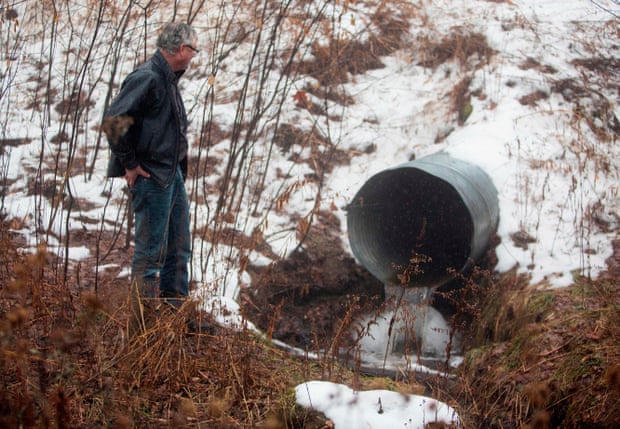Michigan’s second-highest court rules in favor of township in case that could damage company’s effort to privatize water
This article by Tom Perkins was published in the The Guardian on December 5th, 2019.
First a Community Rights commentary about the article by Paul Cienfuegos, Founder and Director of Community Rights US:
If Nestle Corporation’s lawyers can argue that its endless plastic water bottles are “an essential public service” and a “public water supply” that trumps a community’s zoning laws (as it successfully did earlier this year!), then Amazon Corporation’s lawyers should ultimately be able to make a similar argument – that increasing numbers of communities have no stores left because Amazon has cornered the retail marketplace, and thus Amazon provides “an essential public service”! In the future, that may not be as big a stretch as it sounds! Thank goodness Michigan’s Court of Appeals squashed these arguments – at least for now!
Start of the article:
Michigan’s second-highest court has dealt a legal blow to Nestlé’s Ice Mountain water brand, ruling that the company’s commercial water-bottling operation is “not an essential public service” or a public water supply.
The court of appeals ruling is a victory for Osceola township, a small mid-Michigan town that blocked Nestlé from building a pumping station that doesn’t comply with its zoning laws. But the case could also throw a wrench in Nestlé’s attempts to privatize water around the country.
If it is to carry out such plans, then it will need to be legally recognized as a public water source that provides an essential public service. The Michigan environmental attorney Jim Olson, who did not represent Osceola township but has previously battled Nestlé in court, said any claim that the Swiss multinational is a public water utility “is ludicrous”.
“What this lays bare is the extent to which private water marketers like Nestlé, and others like them, go [in] their attempts to privatize sovereign public water, public water services, and the land and communities they impact,” Olson said.
(To read the rest of this article at its original source please click HERE.)

